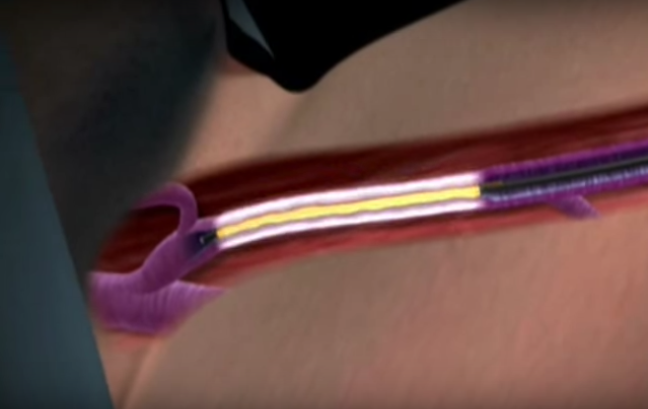Common Questions About Radiofrequency Ablation
Radiofrequency Ablation has become the gold standard in minimally invasive office based procedures to treat vein disease and eliminate varicose veins. Naturally, our patients have lots of great questions about this procedure so we wanted to share some of them with you. If you have more detailed questions or want to see if this procedure may be a good solution for your vein problems please contact us!
What is Radiofrequency Ablation or RFA?
Radiofrequency Ablation, which is generally performed using the VNUS ClosureFast Catheter, is a minimally invasive office-based procedure that treats varicose veins and their underlying cause, venous reflux.
How does RFA work?
For this procedure, a small thin catheter (or flexible tube) is inserted into the affected vein through a small incision. Around the end of the catheter that is inserted there is a small section that uses energy to heat the vein walls through contact. This energy causes collagen in the vein to change shape in order to close the vein. Thereby preventing the backwards flow, and pooling, of blood, which is the cause the varicose vein.
Is this procedure painful?
Radiofrequency Ablation is a short procedure that typically takes less than an hour with minimal or no discomfort. Patients tend to find more discomfort from the anesthetic injections than the procedure itself.
How long is the recovery period after Radiofrequecy Ablation?
The recovery period is short and most patients return to work or normal activity the same day.
Is this procedure covered by my medical insurance?
Radiofrequency Ablation is covered by most medical insurance providers, in some cases your insurance provider may require more conservative therapies, such as compression stockings, be used first.


No Comments